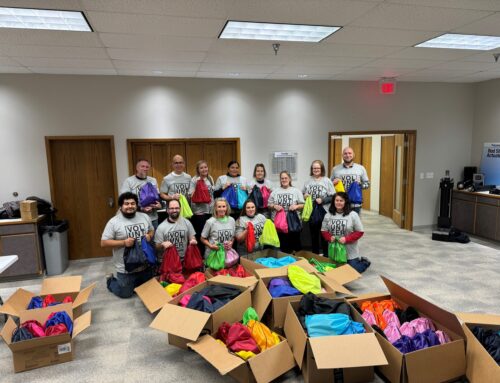I don’t think of it as courage
Two nights ago, I asked my older child (who just turned 21) if it was okay for me to discuss her personal situation in this blog post. She answered that if we don’t talk about it, we’ll never overcome the stigma associated with mental health problems, and people will continue to suffer in isolation and unnecessary shame. It was exactly the answer I expected.
Two years ago, before Emma’s struggles began, I would have called that a courageous attitude. Around that time because of my work, I began attending seminars and meetings about suicide prevention and mental health in the workplace, and I marveled at the courage of people who shared their lived experience stories of anxiety and depression. I didn’t understand how someone could be so brave as to admit to a room full of strangers that he’d tried to kill himself. But he knew exactly the impact it would have on his audience to witness a brilliant, successful man explain the hidden demon that had been destroying him inside for years.
Then that hidden demon attacked my family.
Ethan was a high school senior, a brilliant, successful kid with high GPA, strong test scores, and acceptance letters from good colleges. Then, suddenly, grades slipped. Anger appeared. He started cutting. As his parents, we didn’t understand why all his success suddenly began falling apart.
And we couldn’t talk about it, of course, because everyone else’s kids seemed just fine and no one would understand. So we stumbled along as best we could.
Shortly after graduation, Ethan and his girlfriend came to us, somber and serious, with “something to tell us.” Naturally we assumed what parents assume in this case, but we weren’t even close. Ethan said, “I think I may be gender fluid.” We didn’t know what that was at the time, but we learned quickly.
The ensuing two years has been a journey like none of us had ever anticipated. “Gender fluid” has clarified to “transgender,” and although Emma still looks to most people like a young man, nearly everyone accepts her for who she is inside. Depression and anxiety, in part driven by her gender dysphoria, has slowed her ability to transition. She’s been hospitalized six times on psychiatric holds for suicidal ideation, and one time she actually tried to take her own life. We’ve found that few doctors or therapists have any experience with or understanding of how gender issues complicate a person’s mental health picture. Although Emma has a tremendous network of support and love around her, depression is a powerful demon.
It’s a difficult thing, being the parent of a grown child whose depression has caused at least one suicide attempt. We are all just stumbling through this the best we can.
At first, I thought this was a private thing, something no one else would want to hear about. Then, during a reception at a work conference, I responded honestly to a colleague who simply asked, “and how are your kids?” By sharing my family’s story, I unexpectedly created space for her to open up about her own family’s struggles.
Telling her about Emma’s transition and depression didn’t feel courageous. It felt more like an act of compassion and connection, a recognition that few of us are as problem-free as we feel we have to present ourselves all the time.
Thus, when I stood up in front of a room of 150 people at the Charities@Work conference two weeks ago and told this same story, I didn’t think of it as courage at all. It should not have to be a courageous act to show vulnerability in public. Suppressing mental health challenges only perpetuates the stigma that makes it harder for suffering people to overcome the crushing feeling of pointless shame. There is no part of me that is ashamed of my daughter. There is no part of me that is ashamed of not having the answers, or not being able to “fix” her.
It’s important to remember that we are all stumbling along the best we can. This is the reason I started WriteCause with Community Health Charities. I hope over time it will grow, with others sharing their stories and shining a light on mental health concerns. Only through this sharing can we overcome the stigma and allow people struggling with mental health issues to change from being a person with a shameful secret, into being a person with a loving, supportive network holding them up.
Join us and share your story:
- Post a comment on WriteCause: https://chcimpact.orgWriteCause
- https://chcimpact.orgmentalhealth
- If you’re a writer like Peter, share your story with a 300-word blog
- Raise awareness on social media: #WriteCause #MentalHealth @HealthCharities








